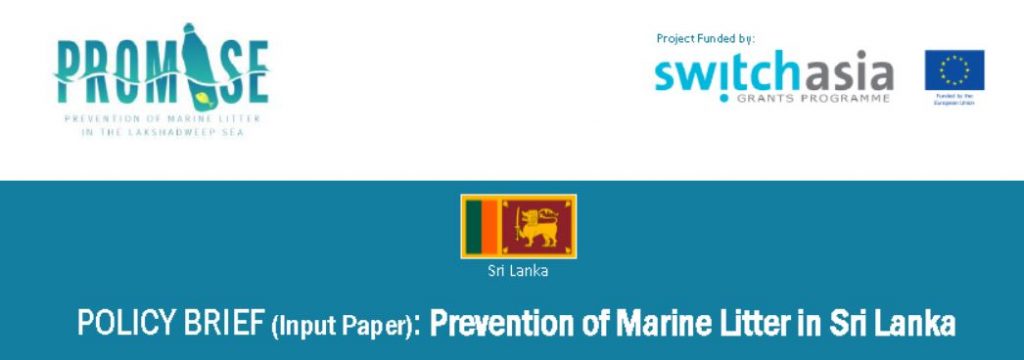
Marine litter and microplastic pollution put the ecosystems of the oceans surrounding Sri Lanka as well as its users at a great risk. Environmental risks include impacts on biodiversity and marine wildlife as well as climate change. Besides the direct impact of plastic production on greenhouse gas emissions, the presence of microplastics in the marine environment indirectly contributes to climate change by reducing the carbon fixation capacity of the oceans. From an economic point of view, especially the fishery and tourism industries face risks with regards to marine litter. Plastic waste floating in the oceans can cause damage to ships and reduce overall fish supply. Beach litter makes beaches that formerly used to attract many tourists unusable and thus deprives the industry of an important mainstay.
This input paper outlines the preliminary findings about the current waste management related policy ecosystem specifically addressing marine litter in Sri Lanka and provides initial recommendations based on desk research. Following engagements with stakeholders such as local authorities managing waste, micro, small and medium enterprises (MSMEs) in the tourism sector, business associations, policy makers etc., this document will be updated incorporating the learnings from these engagements.